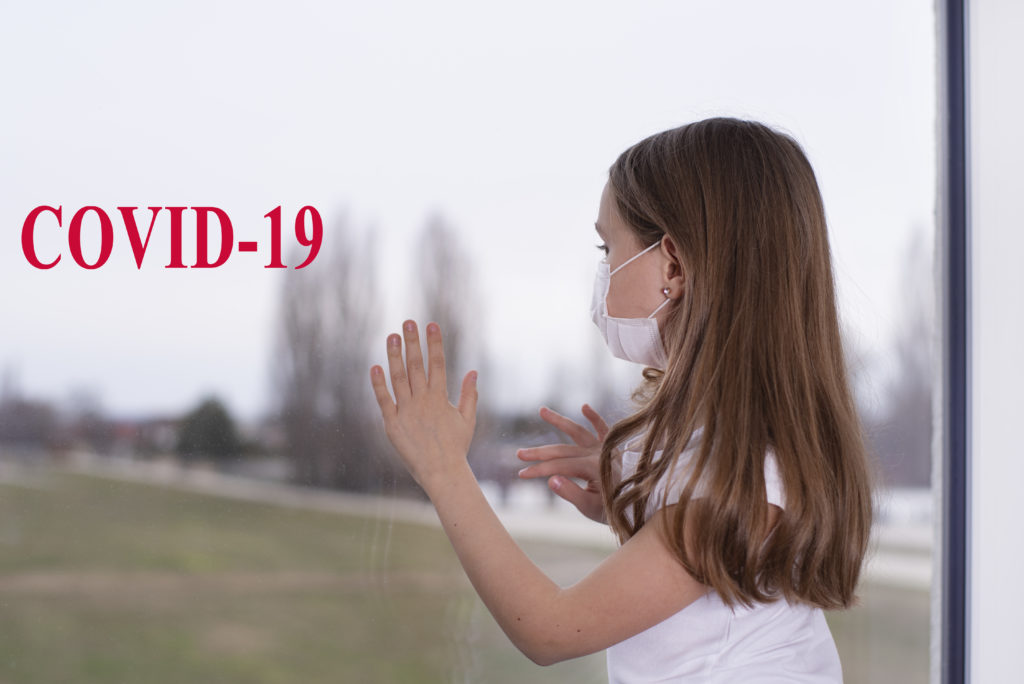Multisystem Inflammatory Syndrome in Children (MIS-C) is a serious condition that has recently been discovered in children 3-6 weeks following infection by COVID-19. Typically, COVID-19 in children causes mild symptoms like the flu, such as fever, fatigue, cough, and body aches. However, since the pandemic began, there have been reports of a more serious condition called MIS-C occurring in a small percentage of children. MIS-C results after the body’s immune system overreacts to exposure to COVID-19, resulting in inflammation throughout the organ systems of the body. This can lead to a syndrome similar to Toxic Shock Syndrome (TSS) or Kawasaki Disease, another inflammatory disease that primarily affects children.
The CDC reports that there have been approximately 2,060 cases of MIS-C as of February 1, 2021. Of these, 99% (2,039) tested positive for COVID-19 (either by rapid testing or antibody screening) while the remaining 1% reported recently being in contact with someone who had tested positive for COVID-19. Symptoms
Symptoms of MIS-C include:
- Severe abdominal pain
- Diarrhea
- Vomiting
- Fever (≥ 100.4o F lasting 1-3 days)
- Rash
- Enlarged lymph nodes
- Headache
- Dizziness
- Conjunctivitis (red eyes)
- Extreme fatigue
- Difficulty breathing
- Cyanosis (bluish color to lips or face)
- Confusion
- Difficulty waking
- Elevated heart rate or low blood pressure
Because MIS-C is a relatively new diagnosis, there is currently no diagnostic test for MIS-C. Diagnosis is made primarily on symptoms and history. Bloodwork will be ordered to check for organ function, inflammation, and the presence of antibodies in patients not having a positive COVID-19 test. Also, long term complications associated with this syndrome are currently unknown, although we do know children who do not receive appropriate treatment in a timely manner are at risk for developing permanent organ damage or, in a small number of cases, death.
Recently, GI for Kids has seen an increase in the number of patients with complaints of vomiting, diarrhea, abdominal pain, and bloating 2-3 weeks after recovering from COVID-19. These symptoms are milder than those described in MIS-C, but because post-COVID illnesses are a new area of research, we are unsure if the two are related.
Treatment
In all cases, children who have been diagnosed with MIS-C should be hospitalized to receive more aggressive care and observation. Admission to the Intensive Care Unit (ICU) is required in cases that are more critical or life-threatening. Treatment is focused on reducing inflammation in the body, which is commonly accomplished with steroids or NSAIDs (ibuprofen, naproxen, etc.). Intravenous Immunoglobulin (IVIG) treatment, a therapy involving the use of antibodies from donated blood plasma, has been used to decrease the body’s immune response. A large majority of patients who are admitted to the hospital and able to receive proper care fully recover from MIS-C.
If your child is experiencing trouble breathing, bluish lips or face, new onset confusion, inability to walk, severe abdominal pain, severe chest pain, or extreme fatigue, seek medical attention immediately. If you are concerned your child might have MIS-C, call GI for Kids at 865-546-3998 for evaluation and treatment.
–Paul Patterson MA
–Youhanna Al-Tawil, MD















